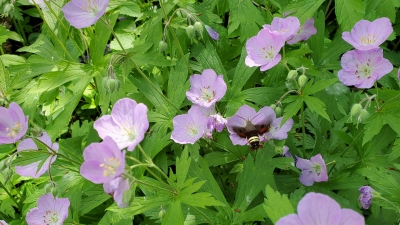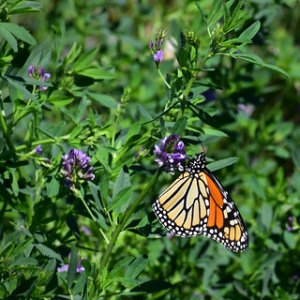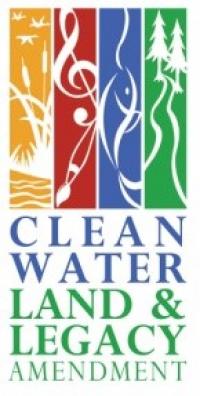Inside this Issue:
Important upcoming dates
Spotlight on Clean Water Fund grants
Water Quality and Storage Grants
Pollinator Pathways Grant
Habitat Enhancement Landscape Program
Alliance to Advance Climate-Smart Agriculture Pilot
Tip of the Quarter
Returning funds
Important upcoming dates
March 27: HELP RFP open
March 28: Pollinator Pathways RFP open
April 11: Water and Quality Storage Program grant RFP close
April 17: Grant execution deadline for FY24 CWF Projects and Practices; Projects and Practices - Drinking Water Subprogram Grants
April 24: BWSR Board Meeting
April 30: FY24 Watershed-Based Implementation Funding applications due by 4:30 p.m.
June 3: Deadline for submitting quarterly funding requests for the Multipurpose Drainage Management grants
June 20: Pollinator RFP Close
June 27: HELP RFP Close
June 30: Some grants expire end of state fiscal year (please check your Grant Agreements)
Oct. 29 - 31: BWSR Academy
Spotlight on Clean Water Fund Grants
Before you begin work on your FY24 Competitive CWF grant, or continue work on a previous year’s CWF grant, read your grant agreement and the reminders in this Grants Quarterly. Reference the Grants Administration Manual for BWSR’s administrative and programmatic requirements and consult with your Board Conservationist if you have any questions.
FY24 Competitive CWF Grant Period
The grant period starts when the grant agreement is executed, meaning the workplan has been approved and all required signatures have been obtained. Work that occurs before this date is not eligible for reimbursement with grant funds and cannot be used as match. FY24 Competitive CWF grants must be completed by December 31, 2026.
Payment Distribution
CWF grant payments will be distributed in three installments to the grantee. The first payment of 50% of the grant amount will be paid after execution of the grant agreement. The second payment of 40% of the grant amount will be paid once the grantee has provided BWSR with notification and BWSR has reviewed and approved the reported expenditures of the initial payment. The final 10% will be paid after all final reporting requirements have been completed and BWSR has approved expenditures and reporting.
Match Verification
BWSR requires documentation for any match dollars. If you will be claiming federal funds as match, this may require working with the Farm Service Agency (FSA) office and obtaining a Freedom of Information Act (FOIA) waiver from the landowner. Please contact your Board Conservationist or Clean Water Specialists if you have questions.
Clean Water Fund Signage & the Legacy Logo
CWF grant agreements from BWSR state that the Grantee will “comply with requirements for project signage.” Legislative language requires that recipients of CWF grantees display the logo “where practicable." This includes printed materials, as well as signage on construction sites or public access points. Read more about the guidelines or download the appropriate logo(s) for print or web at https://www.legacy.mn.gov/legacy-logo.
Water Quality and Storage Grants RFP now open through April 11, 2024
This competitive grant program provides financial assistance to model, design, and construct projects and practices that will control water volume and rates to protect infrastructure, improve water quality and related public benefits, and mitigate climate change impacts. Eligible applicants are local units of government and tribal governments. Funding for this application period is $3,000,000, with up to $500,000 available for modeling and conceptual design applications. Please read the RFP and policy documents to understand changes to this program from previous years. How to apply
Pollinator Pathways Grant RFP now open through June 20, 2024
The Pollinator Pathways grant program promotes native plantings that establish key corridors (or pathways) for at-risk pollinators such as (but not limited to) the Monarch Butterfly and Rusty Patched Bumble Bee, Minnesota’s State Bee. This will be achieved by establishing and educating Minnesotans about pollinator conservation and promoting overall interest in ecological landscaping. How to apply


Habitat Enhancement Landscape Program RFP now open through June 27, 2024
The Habitat Enhancement Landscape Program (HELP) is focused on restoring and enhancing strategically located, diverse native habitat across Minnesota on conservation lands and natural areas to benefit populations of bees, butterflies, dragonflies, birds, and other wildlife. The program also provides co-benefits of carbon sequestration, soil health, water quality improvements, and increased landscape and climate resiliency. How to apply
Alliance to Advance Climate-Smart Agriculture Pilot Program
Applications were received from six soil and water conservation districts covering eight counties to participate in the Alliance to Advance Climate-Smart Agriculture (“the Alliance”) Pilot Program. Applications are currently being reviewed. Participating districts will be responsible for outreach, recruitment, and enrollment of qualifying producers, technical assistance with conservation practices, and verification and reporting of the practices implemented. The Alliance Pilot Program is a multi-state partnership with Virginia Polytechnic University (Virginia Tech) funded through the USDA Partnerships for Climate-Smart Commodities Program, which will pay farmers and ranchers who voluntarily implement conservation practices with incentive payments of $100 per acre or per animal unit, that reflect the benefits they deliver to soil health, water, air and climate.
Tip of the quarter
Q: How can a grantee charge a grant for the cost of administrative time spent on things like training, board meetings, staff meetings, planning, or time tracking (general operations)? These activities are essential to run an office and administer grants but are not practical to assign to any one grant.
A: Staff time spent working on administrative tasks such as training, board meetings, staff meetings, planning, time tracking, or general operations are essential to run an office and administer grants. However, it is not practical to charge this time to any one grant. BWSR does allow a proportionate amount of general administrative time to be included as an administration cost added to the billing rate calculations. Nearly all BWSR grants are program or project specific and while they do pay for work that is direct and necessary for administering the grant, they are not intended to pay for the entire operations of a grantee.
Returning funds
If you need to return grant funds at closeout, please follow the additional steps below. After completing all reporting--including final expenditures in eLINK:
- Answer these questions “Is this a final report?” and “Are you returning funds?”
- Complete the following fields confirm the amount to be returned , enter check # (if known) , narrative
- Check the attestation box
- Save
- Generate Returned Funds Form
If you forget to generate this form on the progress report page, you can still generate it from the progress report page or the generate reports on either the eLINK grant activities tab or the progress reporting tab - Submit
- Make the returned funds check payable to BWSR (return the check and returned funds form to the address listed on the form). Returning the form with the check helps us attribute the funds to the right grant

